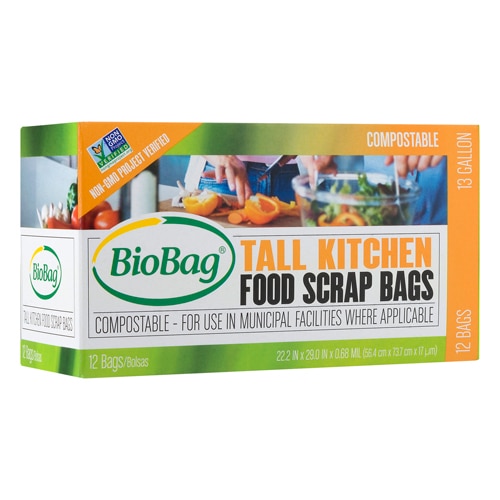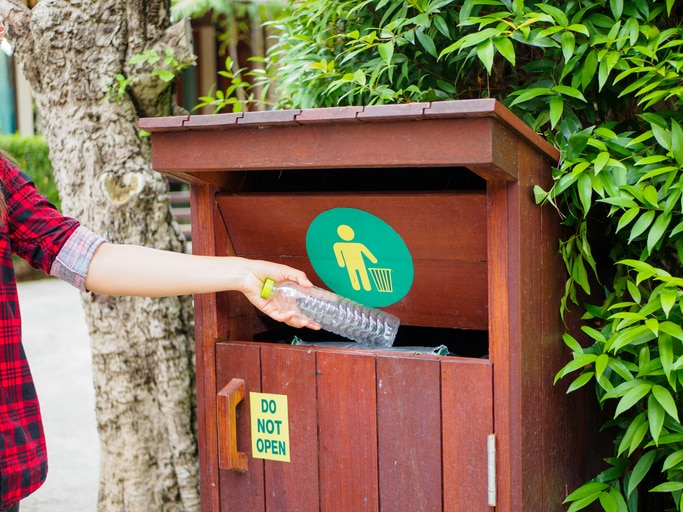When it comes to recycling, the struggle is most definitely real. Even though I’ve done it hundreds of times, there are still reoccurring questions that plague me. Bottle caps on or off? Can you really wad up aluminum foil in a ball and have it be recycled? Do I have to throw away the clamshell?
This article strives to answer your most troubling questions. Perhaps the biggest question of all is whether recycling actually makes a difference. The answer is a resounding yes. According to the Environmental Protection Agency, the energy saved from recycling one glass bottle will operate a 100-watt light bulb for four hours. And according to Pepsi, recycling a single aluminum can saves enough energy to power a TV for three hours.
So recycling is worth doing, complex as it is.
In the future, the permutations may become more streamlined. Point in case Houston’s One Bin for All program, which proposes throwing all waste into the same bin to get sorted at the facility. According to the site, “Using technology, the program would allow Houston residents to place all trash, recyclables and compostables in one bin, providing for a much higher rate of resource recovery.” Although the program is not finalized, it points the way to a future where recycling has the potential to be seamless.
In the meantime, here’s everything you wanted to know about recycling but weren’t sure who to ask.
Top 10 recycling bugaboos
Aluminum foil
According to the Aluminum Association, aluminum is the most recyclable of all materials. “Discarded aluminum is more valuable than any other item in the recycling bin,” the association says.
Tip: Check with your local recycling program to see if it accepts foil. If it does, make sure the foil is clean, then ball all aluminum foil together into one large ball 2-in. or larger in diameter. Do not flatten.
Plastic bags
Although the type of plastic (#2 and #4) that’s used to make plastic bags is recyclable, that doesn’t mean you can throw them in with the rest of your recycling. Why? Plastic bags wrap around and jam up recycling equipment. Or they blow off of landfills and wind up in trees, waterways and oceans.
Tip: Stash all your plastic bags together, and when you have a bundle take them to a place that focuses exclusively on plastic bag recycling. Many grocery stores, including Target, have designated bins for plastic bags.
Caps and lids
Before, plastic bottles with caps on caused problems at recycling sorting facilities. Bottles are made from a #1 or #2 plastic, while caps are made from a #5 plastic called polypropylene, which needed to be processed separately. These days, most recycling processing equipment has improved enough over the years to be able to handle differences in plastic.
Tip: Plastic caps can stay on plastic bottle and jars, as long as they are empty (so they don’t explode.) Plastic lids that pop off rather than screw on, like margarine, cream cheese or yogurt lids, need to go in the trash. In the recycling process, flat plastics like these end up getting sorted with paper, thus contaminating the recycling. Finally, metal lids left on glass jars, such as jam jars, create impurities, so recycle metal caps loose.
Clamshells
According to Ecocycle, “There are no good American markets that want to buy this material.” Plastic clamshell containers like to-go boxes and berry boxes are too flimsy to withstand recycling. When automated sorters see flattened containers, they assume they are paper, which creates a contamination problem.
Tip: The same principle applies to any flattened can, carton or container, so resist the urge to flatten. Looking for a greener alternative? Carry around a food storage container or bento box to carry out food when you pick up, or for leftovers when you dine out.
Shredded paper
Shredded paper is too small to sort—the pieces gum up sorting equipment. According to the Smithsonian, “Shredding paper reduces the grade of the paper, and thus its quality and value. The grade depends on the length of the fiber, and recycling facilities separate paper into bales based on grades. Shredding paper turns it from high grade (letterhead and printer paper) to mixed grade, which includes telephone books and magazines.”
Tip: Compost shredded paper or seek out special shredded paper bins at your local waste diversion center.
Milk cartons, drink boxes and aseptic containers
I always questioned what to do with milk cartons, juice boxes and coconut water tetra paks. According to the Carton Council, “With every carton you recycle, you’re helping make a positive change in society. Milk, soup, juice, wine and broth are just some of the products packaged in cartons that you’ll find in your nearby grocery store—and they’re all recyclable!”
Tip: If you have dual stream recycling, don’t put milk cartons in with paper products. According to the council, “Cartons are made primarily of paper but also have a thin layer of polyethylene, or plastic. Shelf-stable cartons contain a layer of aluminum. As such, milk cartons should be recycled with plastic, metal and glass containers. Ultimately, the cartons will be sorted separately at the recycling facility and disposed of properly.”
Compostable products
The long and short on compostable items: They are designed to be composted in a compost heap only. Composting requires certain condition to break down that do not occur in landfills. Two major cities, San Francisco and Seattle, have enacted ordinances requiring recycling and composting bins at all businesses. Hopefully other cities will soon follow suit.




